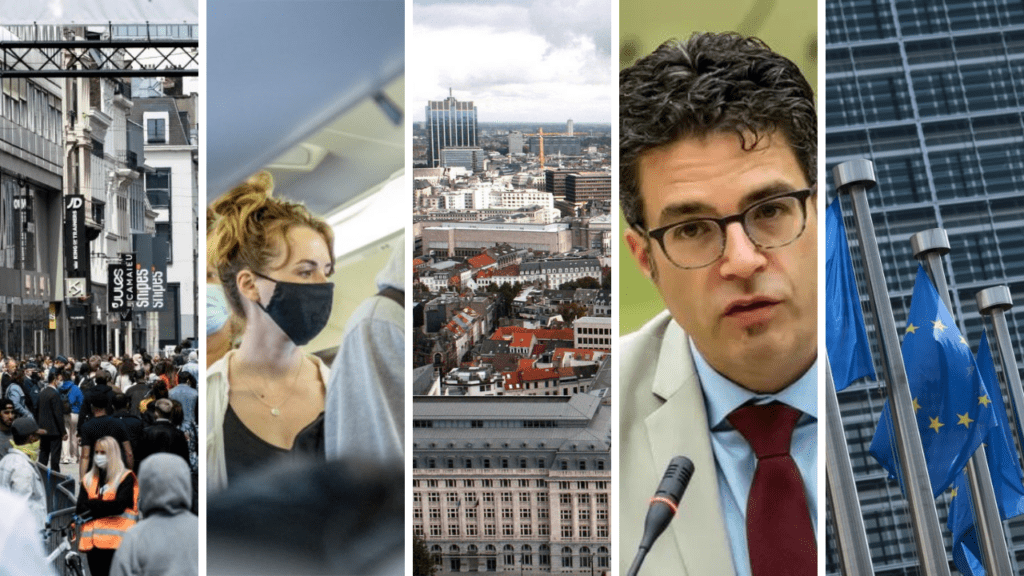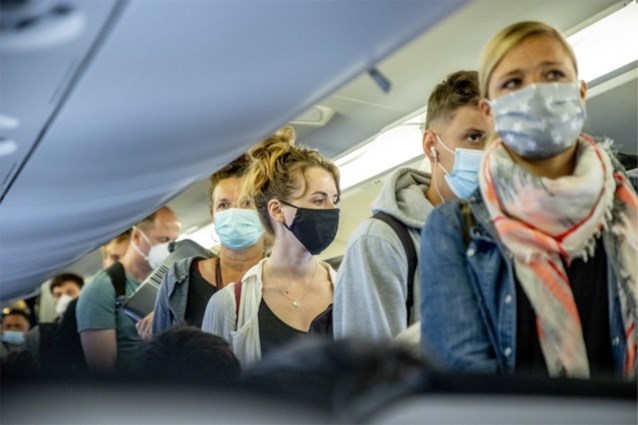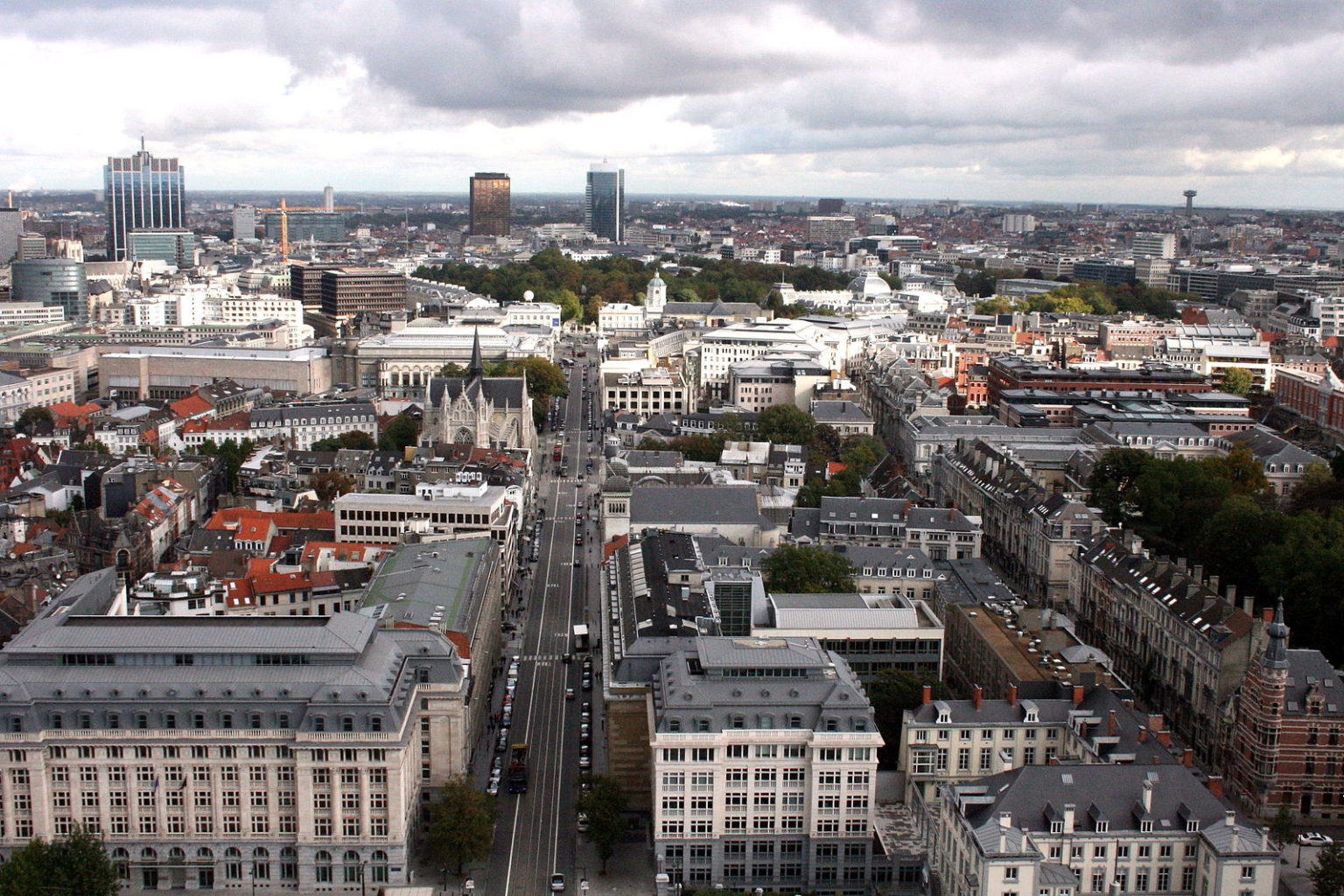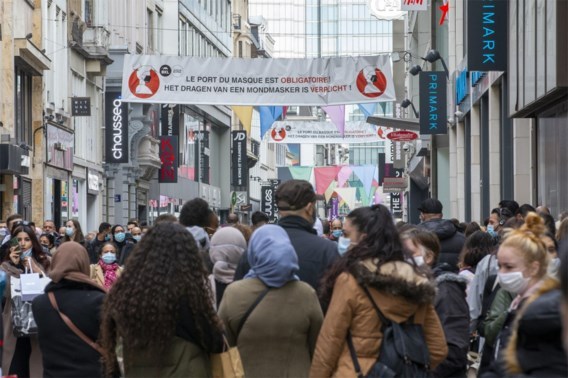Several factors contribute to Belgium being particularly vulnerable to being hit hard by the coronavirus, both before and after the summer, consistently placing the country near the top in international rankings.
"Belgium is a small beehive in the heart of Europe, which makes the country very vulnerable to both the introduction and the further spread of the virus," virologist and interfederal Covid-19 spokesperson Steven Van Gucht told The Brussels Times.
"In an international context, as well as from one province to another and between cities, Belgium is in a very vulnerable position, for a number of reasons," he added.
The heart of Europe
"We are at the heart of Europe, and from here, you can reach large parts of Europe by car," he said. "Transports or journeys are very difficult to control in Belgium."
Van Gucht compared Belgium to Iceland, a country that can know precisely who enters and leaves, as everyone has to come by plane. "So, at the airport, you can check very strictly, you can have people fill in forms and take a test, you can ask them to quarantine," he said.
In a country like Belgium, however, that is not possible, as it is not possible to check every entry-point to the country. "Even if we check the airports in Zaventem and Charleroi, how will we handle the people who land just across the border, such as in Eindhoven, Paris, or Frankfurt?"
Additionally, a lot of people travel by train or by car. "There are so many roads, backroads and dirt roads that lead into Belgium along the border, it is impossible to check all of them," Van Gucht said.
All of this means that Belgium mainly has to rely on the goodwill and trust of the people entering or passing through, according to him. "Still, this is a very big difference with a country like Norway, for example, which is a lot further removed from the centre of Europe."
The capital of the European Union
Brussels being the capital of the European Union likely also played a part in the rapid spread of the virus in Belgium, especially in the beginning of the first wave, according to Van Gucht.
"The people working and living in the so-called 'Eurobubble' travel a great deal, often going back and forth between Belgium and their home country. It is a very mobile population," he said.
"Especially during that first wave, when people were not yet so aware of the dangers, a number of those people likely caught the virus abroad, and perhaps brought it here, or the other way around," Van Gucht said.
During the second wave, however, a number of municipalities in Brussels, such as Schaerbeek, Molenbeek-Saint-Jean, Anderlecht and Saint-Josse-ten-Noode, were hit a lot harder than others.
The problem was greatest in the neighbourhoods "with a lower socioeconomic status," said Van Gucht. "There are many reasons for this, but to a large extent, it has to do with living conditions."
"A lot of people in those hard-hit neighbourhoods live in small houses with large families, usually without even a garden," he said. "Often they also have close family ties, not only within the family, but also with people in the same street or neighbourhood."
The structure of the country
Another factor that makes it easy for the virus to spread is the way Belgium is structured. "Brussels is in the centre, but around it, you have Ghent, Antwerp, Mechelen in the north, and Charleroi, Namur, Liège in the south," Van Gucht said.
"People commute back and forth between these cities every day, even from Ostend. Everything in Belgium is connected, like one large piece of living tissue," he said, adding that it is not surprising that Belgium always shows up high in the statistics.
As Belgium is so connected, both at a national and an international level, it is more difficult to control the spread of the virus. "Sooner or later, every area will be affected by Covid-19, but in the event of such an epidemic, the most connected and international areas are affected first," Van Gucht explained.
The first wave showed that very clearly, he said, pointing to cities that were hard hit such as London, Paris, Madrid and New York City. "It is no coincidence that it was not, for example, Denver, Colorado," he added.
The high population density
Apart from the country's location and connection to the rest of the world, its high population density also plays an important part in how fast the virus can spread.
"We saw this very clearly during the first wave," Van Gucht said, pointing to countries' different R-values - which show how many others one infected person infects on average.
What's interesting, according to him, is that the R-value in Belgium is naturally higher than the one in Sweden, for example.
"During the first wave, when no strict measures were in force yet, Belgium's R-value was 3.4," said Van Gucht, meaning that one infected person in Belgium infected more than three others, on average.
"In Sweden, this value was 2.5. This is still the same virus, but in Sweden, without measures, an average person would only infect 2.5 others in normal circumstances, almost one person fewer," he added.
This has to do with the different population density and context in both countries. "The average Belgian has more contacts and is more mobile than the average Swede," Van Gucht said.
However, that also means that getting the virus under control is more difficult and takes stricter measures in Belgium.
"That is one of the reasons why our country implemented such a strict lockdown in March, and Sweden reacted a lot less and counted more on the goodwill of its population."
Cutting corners
Additionally, the attitude of the Belgian population also differs a bit from that of people in, for example, Germany, according to several experts.
At the start of September, virologist Marc Van Ranst already stated that "it just seems to be Belgian nature to cut corners and look for loopholes and exceptions in the measures" when the infection figures started going up again.
Earlier that summer, the country's Crisis Centre had even explicitly called on the population to not look for those loopholes, but to take the measures in the spirit that they were meant and reduce their contacts as much as possible.
Van Gucht said that he understands that it is difficult to stick to the rules when everything seems to be okay.
"We are, of course, always asking for the measures to be adhered to at all times," he said. "But if almost no people are infected, and almost no patients seem to be in hospital, then I can understand that people are less strict with the rules. That is only human, I think. And Belgian, too."






